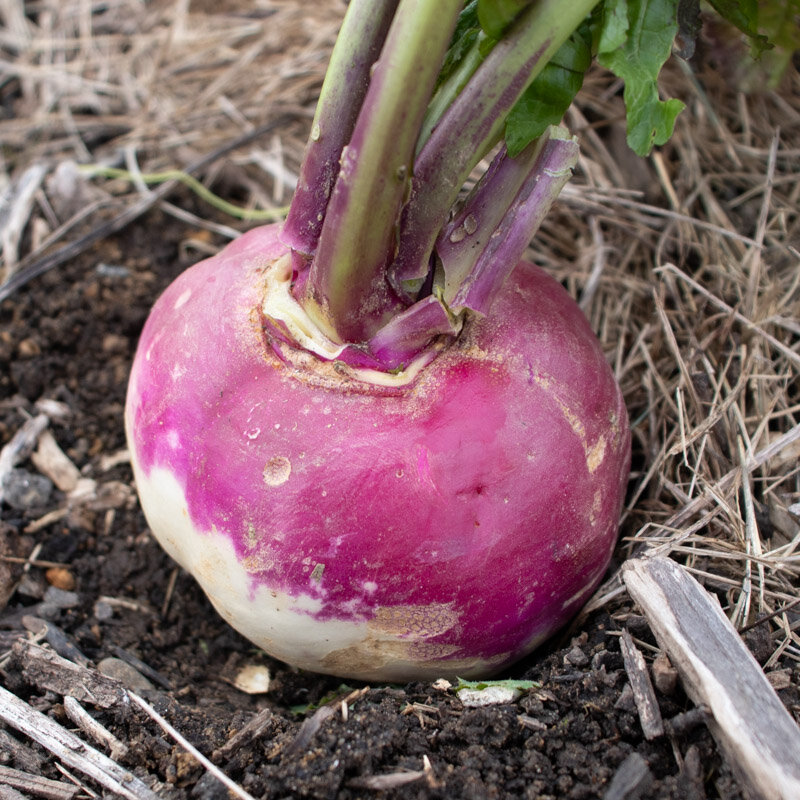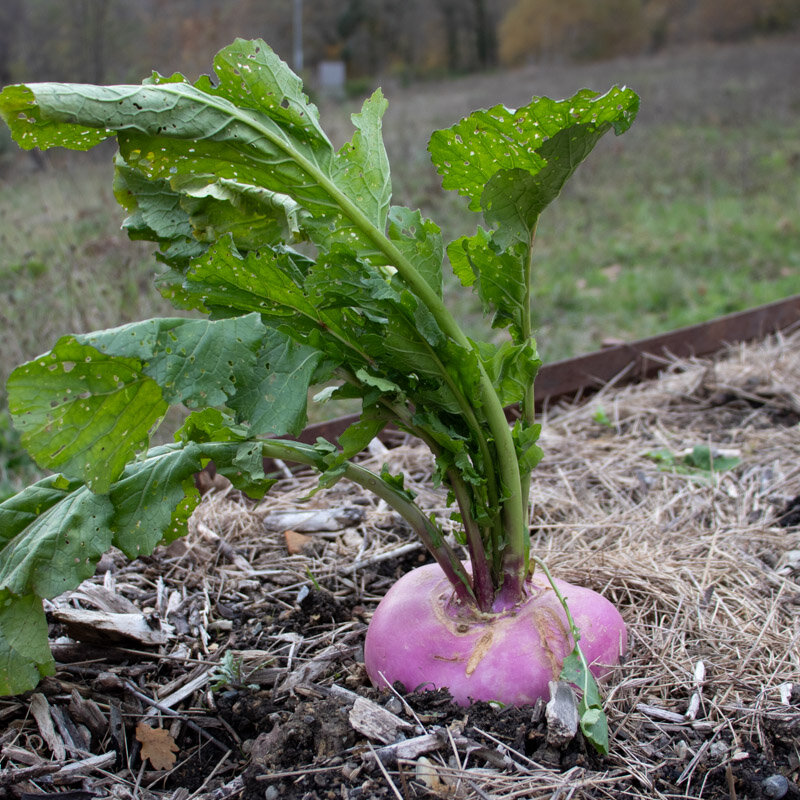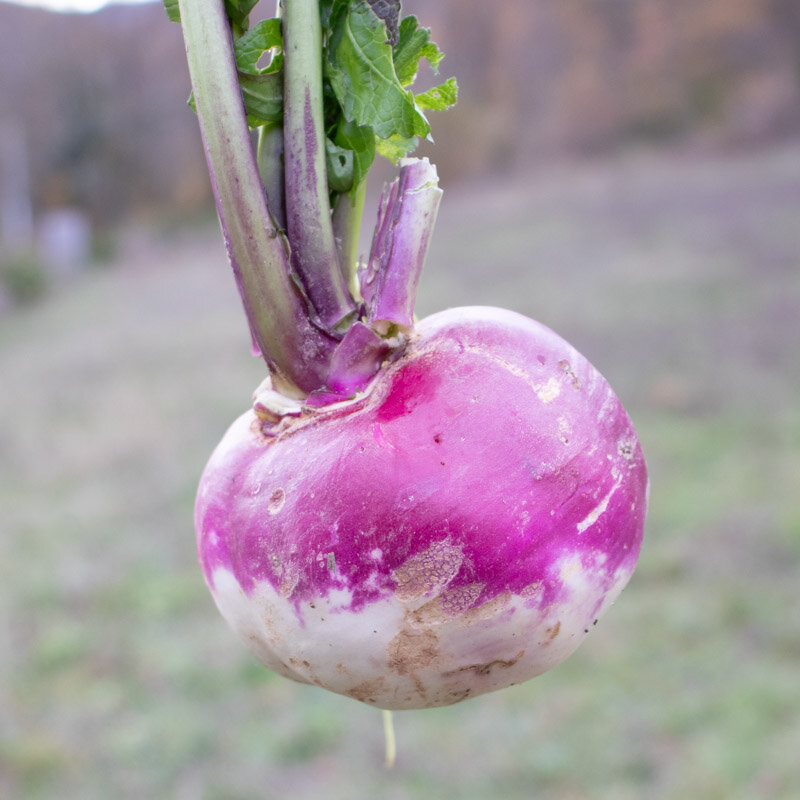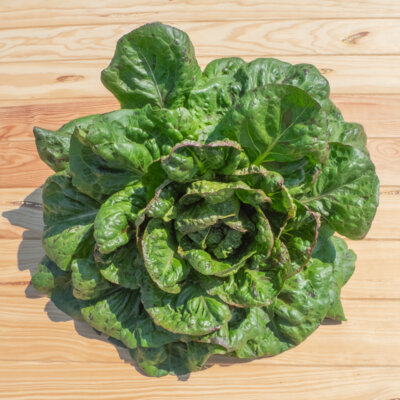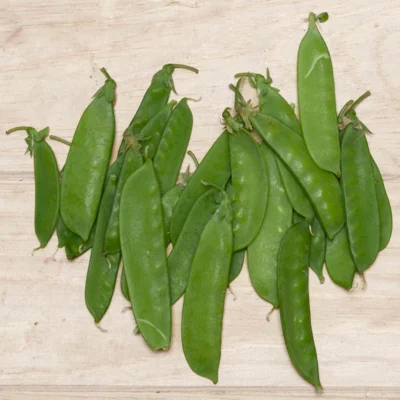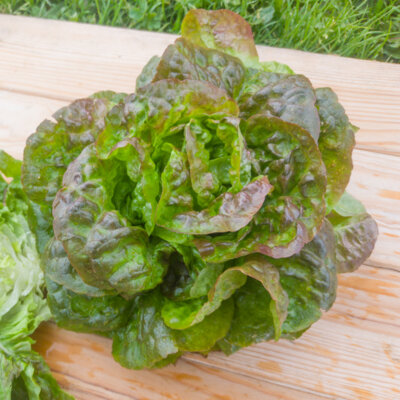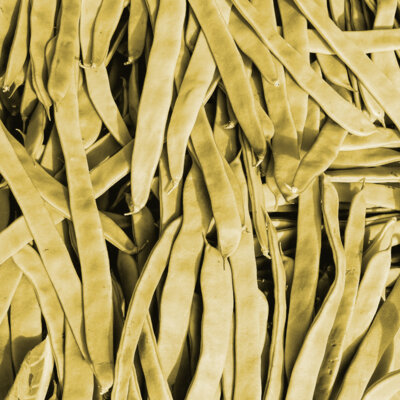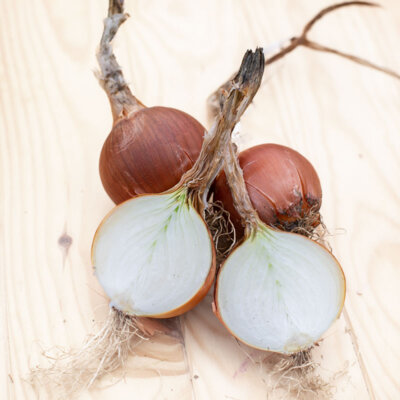Purple Top Milan - Turnip
This variety, which is not very sensitive to bolting, produces flattened white roots with pink collars. Foliage is upright, stiff and not lobed at the base. Their white flesh has a fine, firm texture and good flavor.
This variety is one of the earliest available and is ideally suited to spring cultivation.
Characteristics of the De Milan à Collet Rose turnip
The De Milan à Collet Rose turnip, Brassica rapa, is an early root vegetable variety from Italy. It was mentioned in Vilmorin-Andrieux's Les Plantes Potagères in 1890. Its white roots with pink collars, 10 to 12 cm in diameter, take on a round, flattened shape. Their firm, sweet flesh can be enjoyed raw or cooked. Plants grow up to 30 cm high.
There are also white turnips with red collars and white turnips with green collars.
When to sow pink turnips
Sow in the garden from March to September, for harvesting from May to November.
Sow directly in the vegetable garden, after the last frosts, in rows 25-30 cm apart. Cover the seeds lightly, press them down and keep them moist until they emerge. Seeds generally germinate in 5 days, at temperatures between 15 and 20°C. Thin to 10 cm when plants have 5 to 6 leaves.
Turnips like sunny spots and rich, cool soil. Like all root vegetables, it fears drought, which makes its roots fibrous. Regular watering is therefore recommended.
To keep insect pests away from this root vegetable, consider sowing fennel in the vegetable garden (cabbage maggot, which burrows into the turnip root, and flea beetle, which attacks the leaves). Turnips also thrive alongside tomatoes, celeriac, lettuce, beans and dill.
Harvesting the De Milan to Collet Rose turnip
This early variety is harvested from May to November, around 1 to 2 months after sowing.
De Milan à Collet Rose is best suited to spring crops, but can be harvested before the first frosts, from September to November, for winter storage. After drying for a few days, removing the tops and wiping dry, the selected roots are buried in a sheltered place, such as a cellar or silo, in sand or sawdust. They will keep for 2 to 4 months.
Turnips can also be left in the ground in the vegetable garden, protected from frost with a good mulch.
How to cook turnips
Pink turnips can be used in a wide range of recipes. It can be enjoyed on its own, or as an accompaniment to meats, mushrooms and fruiting vegetables. This root can be prepared raw, grated into salads, or baked, pan-fried, steamed or boiled.
What are the benefits of the pink turnip?
Rich in fiber and generally composed of almost 90% water, turnips help keep the intestines moving smoothly. It is widely known for its emollient and soothing properties. It is also sometimes used to treat chest illnesses. Rich in vitamins (including vitamin C and vitamin B) and trace elements (notably iron, zinc and copper), turnips can be included in the diets of convalescents, the weak and anemic, and athletes.
These products may also be of interest to you
in the ground
Sow lightly, directly in place, after the last frosts, in rows 25-30 cm apart. Cover seeds lightly, press down and keep soil cool. Thin to 10 cm when plants have 5 to 6 leaves.
Turnips do not appreciate dryness, which makes their roots fibrous. Regular watering is therefore recommended. Roots kept for the winter should be harvested before the first frost and stored in a cellar. They can also be left in the garden, protected from frost, but beware of pests.
February
March, April, May, June, July, August, September
May, June, July, August, September, October, November
in the ground
semi-shade, sunny
medium
humus
fees, wet, rich
Brassica rapa
early
500 seeds
flat
fine
Pink
From 60 to 100 cm
Italy
1890
"Vilmorin-Andrieux "Les Plantes Potagères
This ancient Italian variety is mentioned in Vilmorin-Andrieux's 1890 book "Les Plantes Potagères".



